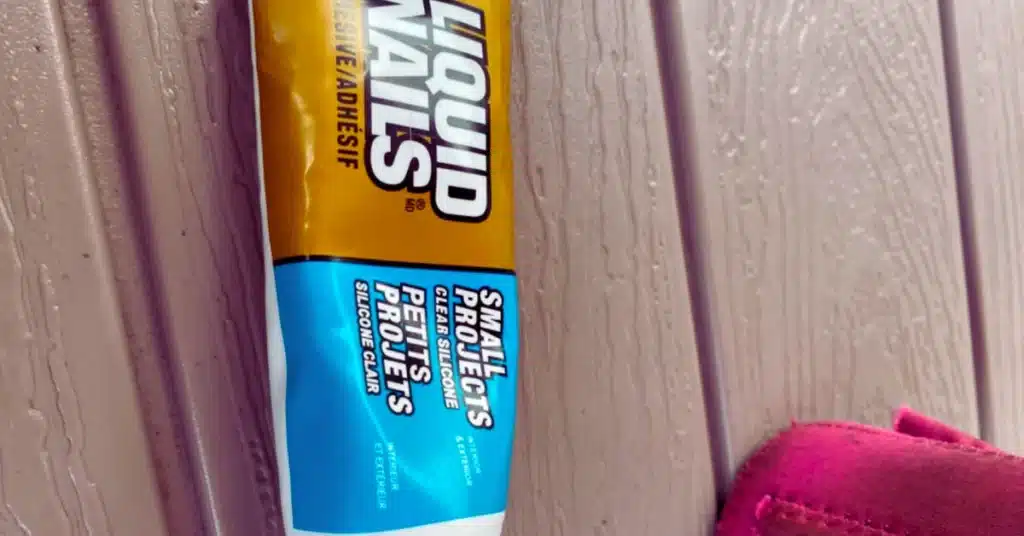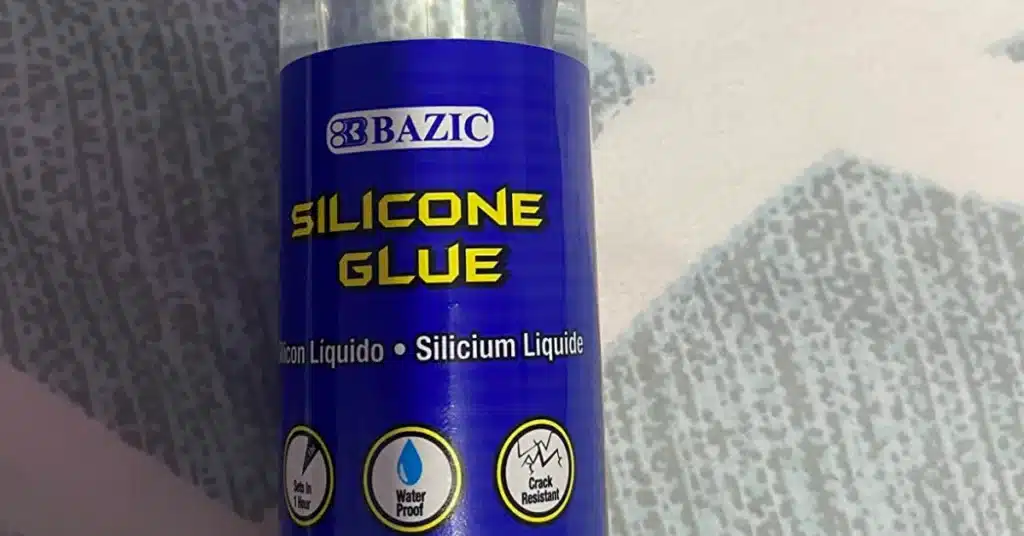When choosing between Liquid Nails and Silicone, first you should know what’s best for your job.
Liquid Nails is a high-strength, heavy-duty adhesive. If you want a versatile product to use on different types of applications, this is the right one.
Silicone is for those who want a flexible bond. To ensure a flexible seal with UV light, chemical, and extreme temperature resistance, Silicone adhesive is the perfect example.
To know better, check out all the information about Liquid Nails vs. Silicone below.
Read More: Liquid Nails Vs. Epoxy
Liquid Nails Vs. Silicone
Types of Liquids Nails Adhesive
Nail Glue is a versatile adhesive. It is called a heavy-duty construction glue that ensures a tight bond.
You can use it on materials like metal, glass, ceramics, plasterboard, and many other heavy-duty substitutes. Liquid Nails is a versatile adhesive. It comes in different types.
There are synthetic rubber-based adhesives, water-based acrylic adhesives, and adhesives for glass, drywall, tile, masonry, wood, and more. The synthetic one has frost and high moisture resistance.
The water-based one is known for its non-toxic feature with limited frost resistance. The glass, tile, masonry, drywall, and wood ones are also good ones with great features.
The 2X stronger feature, instant grab technology, and hybrid technology that bonds anything. Also, it can be used in different weather. It’s a good one for sure.

Read More: Liquid Nails Vs. E6000
Advantages of Liquid Nails
Liquid Nails is mainly used for heavy-duty usage. Such as any construction projects, building tasks, and paneling can be done with it.
The major advantage is the versatility of Liquid Nails. You can use it on concrete for concrete applications.
Besides, another pros is its better bonding capability compared to other adhesives. And if you follow the instructions the exact way, you can get the most exceptional bond ever.
Read More: Power Grab Vs. Liquid Nails
Disadvantages of Liquid Nails
Liquid Nails has some drawbacks that you must know. If you want a quick fix, Liquid Nails is not the right one for you.
You need at least 30 minutes to dry and 24 hours before applying pressure to the surface.
Besides, cleaning Liquid Nails from the surface or skin is difficult. Without using any oil-based product, removing the glue can be a mess.
Types of Silicone Glue
Silicone adhesives are popular for their highly flexible features. It has UV light resistance, and extreme temperature resistance as well.
Also, it is heat-resistant and has a rubbery texture that can be used as an adhesive, sealant, medical component, lubricant, and more.
There are different types of silicone, such as silicone adhesive, RTV silicone, silicone oil, silicone rubber, and silicone sealant. Different silicone adhesive products work differently.
Silicone adhesive is for bonding two surfaces. It is mainly used for glass, electronic applications, automotive applications, and medical projects.
RTV silicone is a vulcanizing silicone that dries at room temperature. It’s suitable if you want a flexible, rubbery bonding.
Silicone oil has high thermal stability, and low viscosity. It is used as a lubricant, or hydraulic fluid.
Silicone rubber is used to have a high tensile strength. It also has a tear-resistance formula. Lastly, silicone sealant is widely used in construction applications and building projects.
Read More: Liquid Nails vs. Super Glue

Advantages of Silicone Glue
Silicone glue is beneficial for various reasons. It has extreme temperature, heat, and cold resistance.
Moreover, silicone glue is widely popular for its incredible flexibility. Also, it includes resistance to chemicals, moisture, UV light, and mould.
It can also facilitate thermal movement between different types of materials.
Read More: Liquid Nails Vs. Loctite
Disadvantages of Silicone Glue
Silicone glue has some disadvantages or some caution that you must know. First of all, it has low tear resistance.
As it is mostly flexible, it tends to tear. Besides, silicone glue cannot be painted easily because of its rubbery finish.
Another thing about this glue is it can leave the surface tacky and sticky. These are the things you should know before using silicone adhesive.
Last Opinion
As things are clear between Liquid Nails and silicone glue, you can now choose what’s best for your job.
According to all the factors of the Liquid Nails vs. Silicone comparison, select the suitable one that meets the requirements of your job.
Liquid Nails is for heavy-duty usage. Silicone adhesive is for random use. Silicone sealant is for construction materials.
Get the suitable one to have the best outcome.






